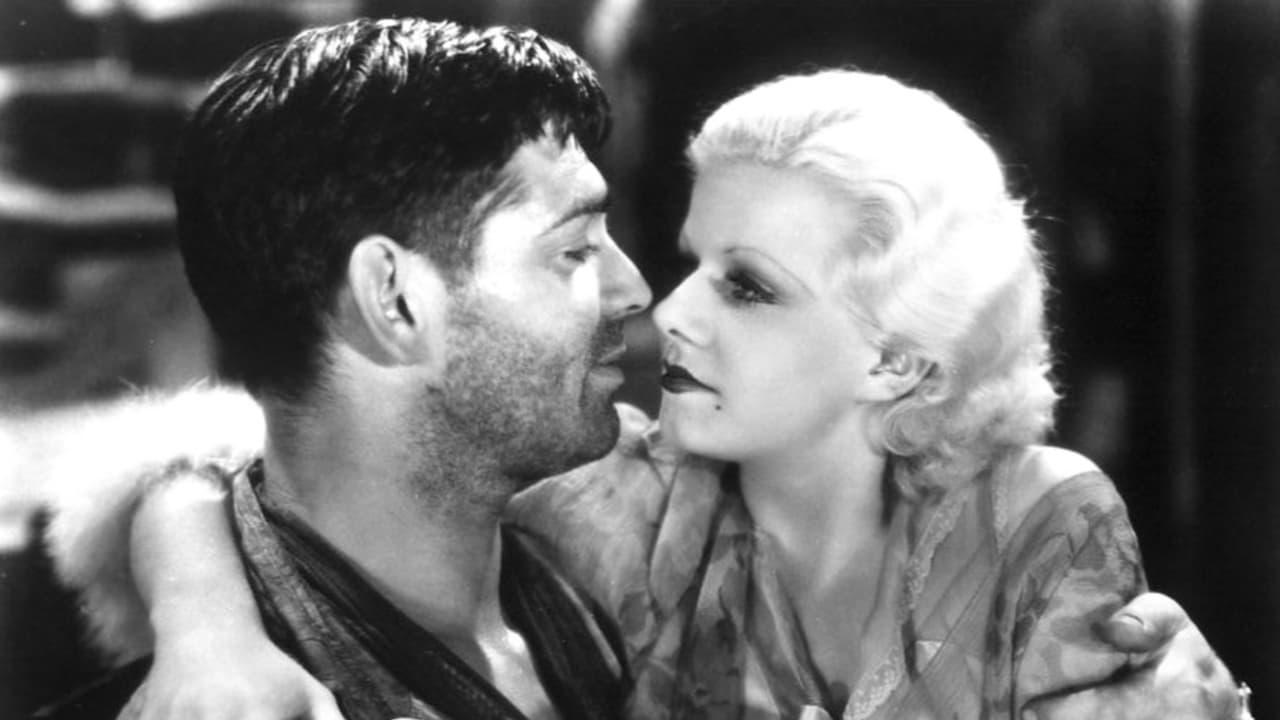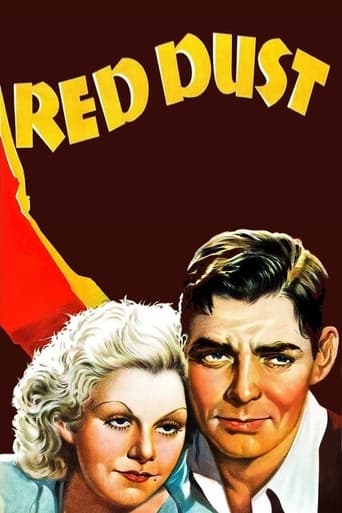



From my favorite movies..
Crappy film
n my opinion it was a great movie with some interesting elements, even though having some plot holes and the ending probably was just too messy and crammed together, but still fun to watch and not your casual movie that is similar to all other ones.
View MoreThe movie's neither hopeful in contrived ways, nor hopeless in different contrived ways. Somehow it manages to be wonderful
View MoreThe owner of a rubber plantation (Clark Gable) becomes involved with the new wife (Mary Astor) of one of his employees (Gene Raymond).The movie was remade by director John Ford in 1953 as "Mogambo", this time set in Africa rather than Indochina and shot on location in color, with Ava Gardner in the Harlow role and Grace Kelly playing Astor's part. Clark Gable returned, twenty-one years later, to play the same character. Ford used African tribal music as the film's score.I like the idea of a film set in French Indochina, especially one made in the 1930s. Now, all anyone associated with the region is the Vietnam War (both the French and later American parts), and it is interesting to see it from another angle -- although, in a sense, it is sort of the same angle. This is very much a film about Western colonialism, even if that was not the original intent.
View MoreGolden Age fans will love this one, a Pre-Code film that's much like a filmed stage play - in fact, it's based on a play which, by all accounts was even racier than the movie. It was made in 1932 and certainly couldn't pass muster after the inception of the Hays Office, but nowadays anything goes; odd someone hasn't tried. They would be hard-pressed, though, to find a better cast, especially the two principals. Gable and Harlow are perfect together, the animal magnetism fairly leaping off the screen. Gable was the very model of modern masculinity at the time, and Harlow his female counterpart.Some reviewers noted an element of racism woven throughout the picture, but they should give it a rest. The world in general and society in particular were vastly different from the modern PC era. Also of interest is the support cast, headed by Mary Astor, who admittedly was a better actress than Harlow but minus the manifest 'feminine wiles'. In a departure from more dignified roles, Donald Crisp plays vulgar drunk and to excellent effect.Have you seen it? If not, do so. It's well worth your time just to see how the 'pros' used to do it, inherent plot flaws notwithstanding.
View MoreFor viewers who may not be familiar with Jean Harlow, this is a terrific film to start with. Her screen presence was unmatched; certainly the sexiest actress on the silver screen until MM, and extremely well-matched with Gable. Harlow plays a sassy hooker who gets most of the clever lines ("I don't usually sleep nights.").Gable is perfectly cast as the rough plantation owner living in a thoroughly man's world with no use for women (except as playthings). The man had more screen presence in his little finger than most actors have at all. His boyishly arrogant grin after Astor slaps him is simply great.Mary Astor shines as the lady who should be above all this but who succumbs to Gable's animal magnetism. Her face as she reflects on the first wild kiss is a landscape of emotional turmoil: "Oh my God, what have I done? Wasn't it wonderful though!"--should be required viewing for any aspiring actress.There's not much plot--it's yer basic love triangle story: who's he going to end up with? The woman with class, or the sassy hooker? Astor's character is out of her depth in the jungle setting, so she's easily overwhelmed by the overly self-confident Gable-character. Gable's character is out of his depth with a woman of class; she would normally be out of reach for him anywhere else. Their dalliance makes sense only in that setting. Harlow at first snipes at her rival, Astor, but soon realizes that Astor is really only a victim and redirects her heavy artillery at Gable instead. The banter is terrific and bears rewinding as it goes by so quickly.The film lives from its dialog and clever lines. Considering that the film was made so soon after the introduction of talkies, it holds up extremely well--credit to director Fleming, no doubt. The dialog in Marocco, made two years earlier with Gary Cooper and Marlene Dietrich, was awful by comparison--stilted, wooden, very awkward, and cannot be attributed to lack of actors' ability, but lack of experience with talkies as a medium. Fleming showed that he had mastered it already.A few commentators have derided the film for being racist. DUH. The colonial powers occupying Indochina at the time were racist and probably treated the locals much more savagely than in the film. Sure it's painful to watch--it should be! Drop the political correctness nonsense and just enjoy the banter.
View MoreThis film was the one which really showcased Jean Harlow, fresh at MGM after a stint at Columbia, and a film or two as one of the muses of Howard Hughes.In real life she'd married and been widowed in quick succession, and although the Paul Bern scandal must have been a strain, it doesn't show here on screen. Harlow is absolutely luminous, a wise-cracking hardboiled good-time girl with a soft centre and a hint of innocence. What else could she be but a bright platinum blonde? Mary Astor, tight-laced and classy, arrives at the sexually-charged rubber plantation with feverish husband Gene Raymond, and catches the eye of wide-boy hard-man Clark Gable (a real he-man of the 'grab em by the hair' school).A fascinating slice of 1930s pre-Production Code history, 'Red Dust' sizzles and is always in heat. Remade as 'Mogambo' and apart from the addition of colour, some recasting (Gardner for Harlow, Grace Kelly for Astor, Donald Sinden for Raymond), it remained a heady brew, even down to the indefatigable Mr Gable reprising his role as Carson!
View More